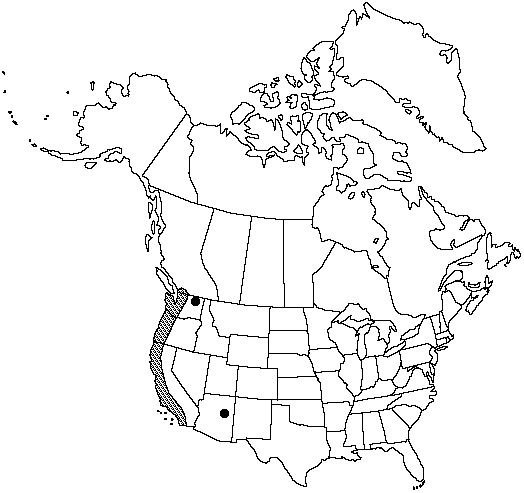Difference between revisions of "Dryopteris arguta"
Amer. Fern J. 11: 3. 1921.
imported>Volume Importer |
imported>Volume Importer |
||
| Line 51: | Line 51: | ||
|publication year=1921 | |publication year=1921 | ||
|special status= | |special status= | ||
| − | |source xml=https:// | + | |source xml=https://bitbucket.org/aafc-mbb/fna-data-curation/src/2e0870ddd59836b60bcf96646a41e87ea5a5943a/coarse_grained_fna_xml/V2/V2_236.xml |
|genus=Dryopteris | |genus=Dryopteris | ||
|species=Dryopteris arguta | |species=Dryopteris arguta | ||
Revision as of 20:22, 5 November 2020
Leaves monomorphic, green through winter, 25–90 × 8–30 cm. Petiole 1/4–1/3 length of leaf, scaly at least at base; scales scattered, light brown. Blade green to yellow-green, ovate-lanceolate, pinnate-pinnatifid to 2-pinnate at base, herbaceous, glandular. Pinnae ± in plane of blade, lance-oblong; basal pinnae deltate, not much reduced, basal pinnules ± same length as adjacent pinnules, basal basiscopic pinnule and basal acroscopic pinnule ± equal, pinnule margins serrate with spreading, spinelike teeth. Sori midway between midvein and margin of segments. Indusia lacking glands. 2n = 82.
Habitat: Shaded slopes and open woods
Elevation: 0–2100 m
Distribution

B.C., Ariz., Calif., Oreg., Wash., Mexico in Baja California.
Discussion
Dryopteris arguta is somewhat variable. It has been suggested that more than one taxon is involved. No hybrids involving D. arguta are known.
Selected References
None.